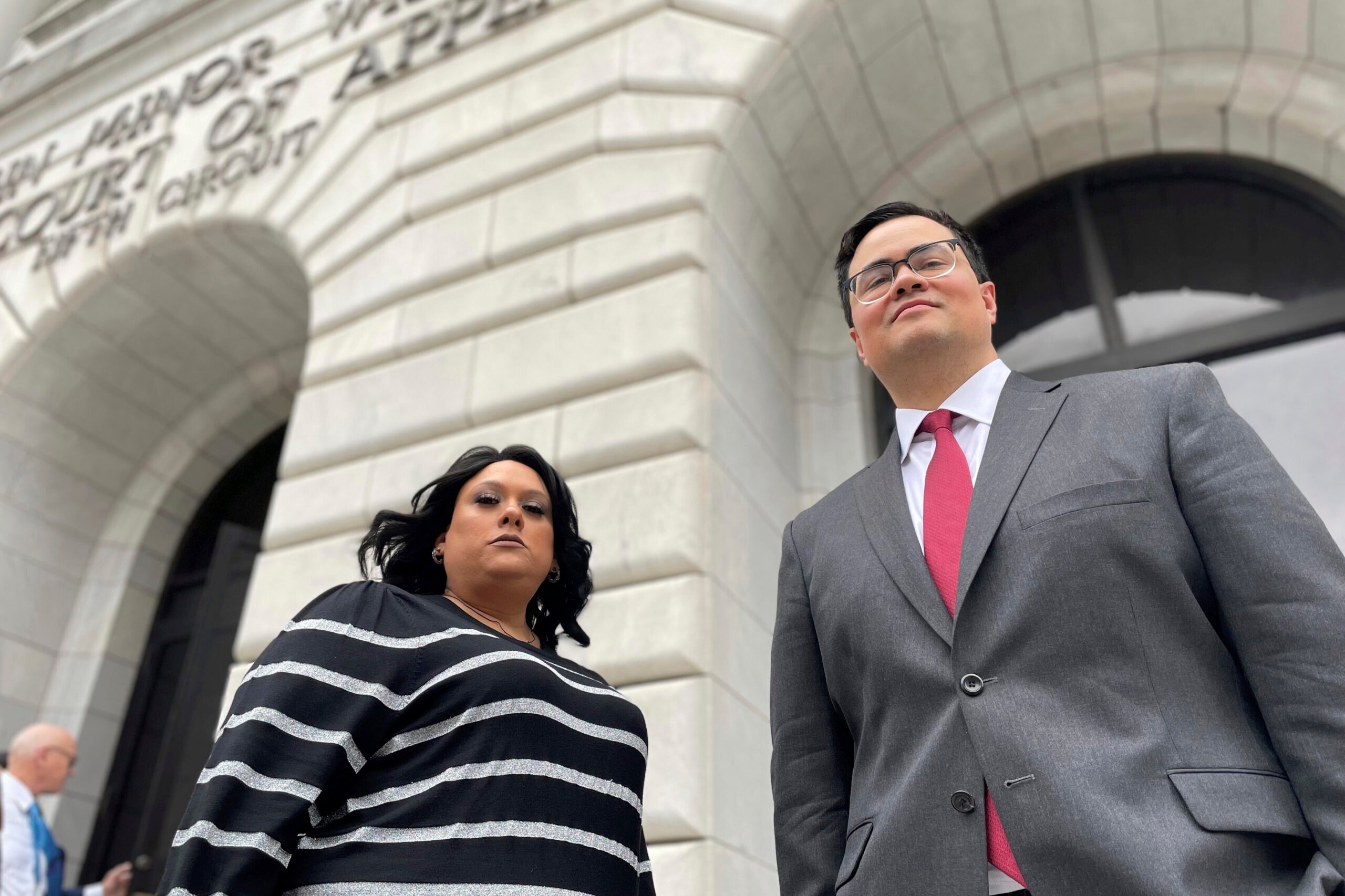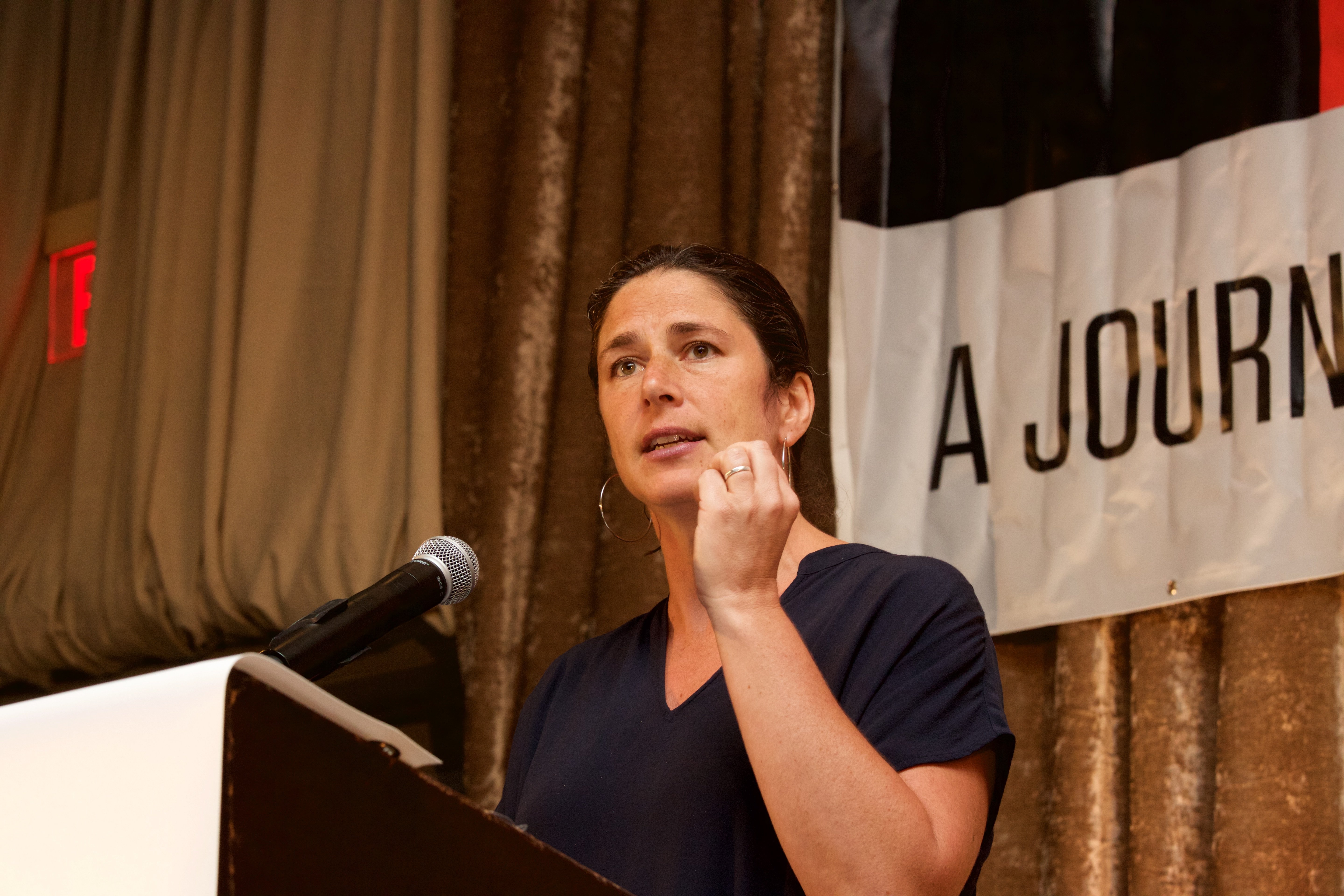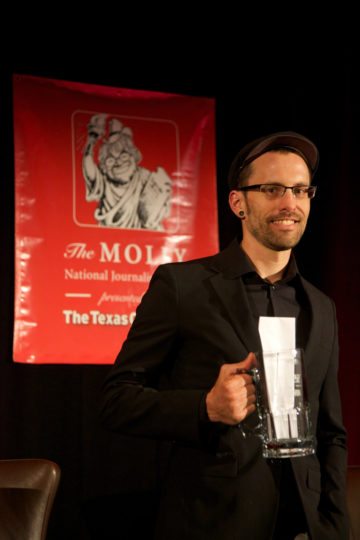
On Thursday, The Texas Observer and the Texas Democracy Foundation awarded Shane Bauer with the 2017 MOLLY National Journalism Prize. The competition celebrates great American journalism and honors the memory of Molly Ivins, legendary Observer reporter, columnist and former editor.
Awardees were recognized at a sold-out dinner at the Four Seasons Hotel in Austin. About 500 guests attended the 11th-annual gala, which featured a keynote conversation with Jamelle Bouie, chief political correspondent at Slate; Observer publisher Michael Kanin; and Bauer. Abby Rapoport, the Observer’s board chair and acting publisher, co-chaired the event with board member Katie Cukerbaum.
Bauer adds the MOLLY to a litany of honors for the story, including the Atlantic’s Michael Kelly Award and Harvard University’s Goldsmith Prize. One MOLLY judge wrote, “Shane Bauer got this story the only way it could be gotten – by going into the belly of the beast as a guard, and observing and chronicling what happens.”
A senior reporter at Mother Jones, Bauer won for his blockbuster undercover investigation of a private prison in Louisiana. Bauer spent four months working inside Winn Correctional Center as a guard hired by the for-profit Corrections Corporation of America (now CoreCivic). His July 2016 story chronicled the low pay, understaffing, violence, corruption and substandard medical care that characterize life behind bars in the United States. According to Bauer’s editors at Mother Jones, the piece cost the magazine $350,000 and required 18 months of editing, fact-checking and legal vetting.
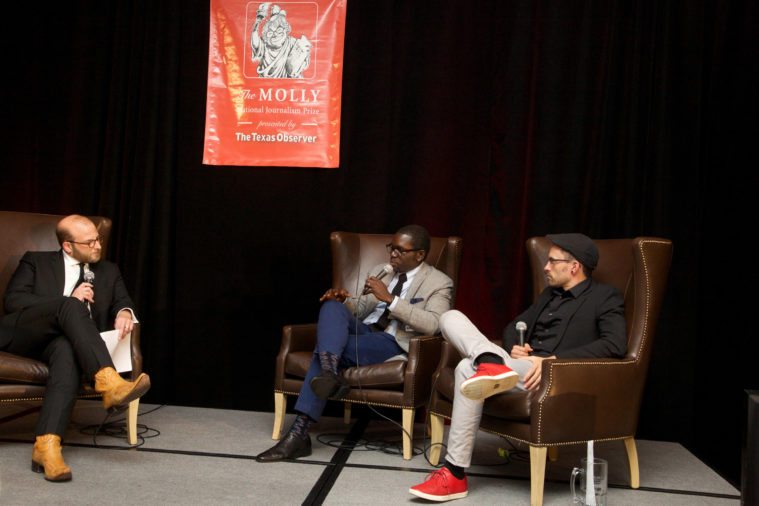
Honorable mentions went to Patricia Callahan and Michael J. Berens of the Chicago Tribune and Sarah Ryley for her series with the New York Daily News and ProPublica.
Callahan and Berens’ series, “Suffering in Secret,” showed readers how the state of Illinois sent thousands of low-income adults with disabilities away from state institutions into cheaper private group homes where they were often abused and neglected. In what judges called a “near-superhuman effort,” their reporting involved more than 100 Freedom of Information Act requests and a custom-built database from thousands of pages of government records. The series led state officials to retract erroneous group home statistics on abuse and neglect cases, as well as to stop allowing group home employees to investigate their own businesses.


Ryley’s work exposed nuisance abatement, a little-known police power in New York City that allows cops to ban people from their homes or businesses without due process. In collaboration with ProPublica and the New York Daily News, she pored over more than 1,100 cases, interviewed people who’d been evicted and used data analysis to show the severity of the evictions. The city has since passed sweeping reforms to how police can carry out nuisance abatement.
Ryley also won the Pulitzer Prize for Public Service, while Callahan and Berens were Pulitzer finalists in the investigative reporting category.
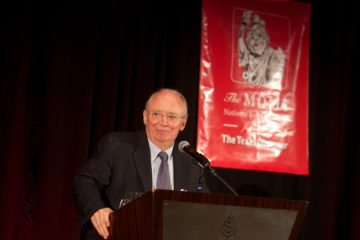
Texas Democracy Foundation board member Robert Frump was honored with the nonprofit’s Bernard Rapoport Philanthropy Award. A communications, content and web marketing expert, Frump is a past recipient of the George Polk Award and the Gerald Loeb Award. He also served on a Philadelphia Inquirer task force that won the Pulitzer Prize.
Didn’t make the MOLLY gala this year? You can still support independent, investigative journalism by becoming a member, subscribing to the magazine or making a tax-deductible donation to the nonprofit Observer.

